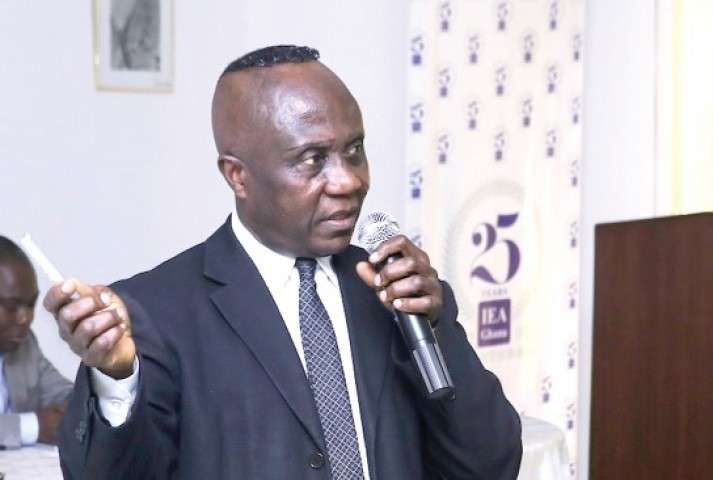The Institute of Economic Affairs (IEA) has encouraged current and future governments to take control of the country’s development destiny, since it is the only way to halt the perpetual International Monetary Fund Programme.
According to the economic research tank, Ghana must build and entrench its own policy credibility without relying on the IMF in the long run.
“The long-term economic progress and survival of Ghana depends on internalizing the country’s development by leveraging its abundant domestic resources to support home-grown, inclusive and cross-cutting policies anchored by financial discipline and a transformational strategy.”
Institute of Economic Affairs (IEA)
The IEA further said “it will be helpful to have a National Development Plan that spells out broad national priorities and strategies to achieve them.”
“Party Manifestoes that are often characterized by experimentation and wayward policies that cater to individual and party interests, rather than the national interest should no longer be prioritized.”
Institute of Economic Affairs (IEA)
IEA Admonishes Gov’t To Establish Buffers To Safeguard Economic Disaster
More so, the Institute of Economic Affairs has pleaded with government present and future government administration to find solutions to the unexpected circumstances that happened in the past, like the Covid-19 outbreak and the Russia-Ukraine war – which revealed Ghana’s existing weaknesses, culminating in the economic catastrophe that has forced the country back to the International Monetary Fund.

Above all, the economic think tank wants the government to create robust economic and financial buffers, including a significant budgetary space and a sinking fund to support debt repayments, among other things.
The Institute of Economic Affairs communicated that a contingency fund to cater for economic shocks and emergencies, and a robust financial sector must be established.
“The IMF programme, just like the previous 16, can only bring the country temporary relief in terms of macroeconomic and financial stability and a boost in market confidence and policy credibility. The programme, as expected, is geared toward achieving targets and fulfilling goals that the IMF has determined to be appropriate for dealing with Ghana’s economic crisis.
“However, these targets and goals are not sufficiently ambitious as the programme does not seek to harness the country’s full potential. Like previous programmes, this one cannot be the game changer for Ghana; it cannot be the panacea for the country’s recurrent economic crises. Ghana requires quantum jumps in its development and not the small incremental changes embodied in IMF programmes.”
Institute of Economic Affairs
Read also: Benchmark Index Drops Below 2,500 Points





















